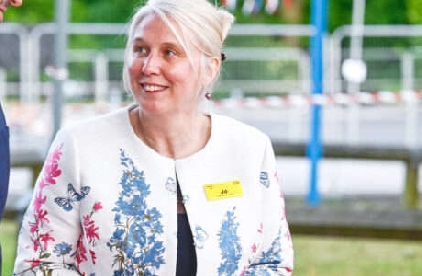
Labour wants to put “more money in people’s pockets” a shadow cabinet member has told high street businesses in Chepstow.
However Liz Kendall, who is the shadow pensions minister, wouldn’t be drawn on any specific changes to benefits to boost the incomes of the poorest people in the UK.
She was in the border town with Welsh first minister Vaughan Gething to discuss small and medium sized businessess.
At the Toytastik toy shop on St Mary Street owner Liz Amphlett raised the Welsh Government’s decision to reduce relief on business rates paid by shops and restaurants from 75 per cent, in place since the Covid pandemic, to 40 per cent. That has resulted in bills rising by thousands of pounds since April.
Ms Kendall told the shopkeeper “the number one issue is putting more money back into people’s pockets so they can afford to spend it on our high streets.”
Speaking to the Local Democracy Reporting Service Ms Kendall wouldn’t commit to changes to benefits as suggested by Welsh anti-poverty charity the Bevan Foundation.
Its wants parties to commit to increasing Universal Credit to a guaranteed minimum and an end to the two child benefit cap, introduced in 2017 that restricts child tax credit and universal credit to the first two children in a family.
Labour leader Sir Keir Starmer said last year the party would keep the policy due to its own spending constraints.
Ms Kendall wouldn’t comment on specific changes to benefits but said: “We have a clear committment to a bold and ambitious, cross government strategy to tackle child poverty and we’ve set out how we’ll make a start.”
Some promises, such as free school breakfast clubs which are already in place in Wales, would only apply to England. The Welsh Government published a child poverty strategy last year but previously scrapped targets as it said the main leavers rest with the UK Government.
Ms Kendall said: “You’ll see all of our plans in the manifesto, but I’m absolutely passionate about tackling this issue, we have a long, long way to go I will only make commitments I know I can keep, but we have made a start.
“A genuine living wage, cutting people’s bills with Great British Energy and our plan to create more good jobs in every part of the country, that is the key to the future of this country. That is the way that we tackle poverty, there’s more to do, I have no doubt, but I’m absolutely committed to deliver.”
On business rates first minister Mr Gething blamed pressures on the Welsh Government’s budget, with the bulk of its funding dependent on Westminster, and the loss of European Union funding for cuts it had made in its budget that had reduced in real terms.
Labour-led Monmouthshire council has written to the Welsh Government over business rates due to concerns high street traders are paying higher rates than those in nearby towns across the border.
The Welsh Conservatives have continually criticised the Welsh Government decision and have insisted Westminster has delivered “record funding” for Wales and that it maintaining 75 per cent relief in England means Wales has the funding to do the same.
Toy shop owner Ms Amphlett said reducing relief to 40 per cent “is huge” but it may have been more manageable if it was introduced in a few years time as she said her’s, and many other businesses, are still repaying pandemic recovery loans.
She said she hadn’t really been provided with any “clarity” on what could be done on business rates and said: “To have to choose between small business and the NHS, it is ridiculous.”


 More houses planned in Ludlow as part of Rocks Green development
More houses planned in Ludlow as part of Rocks Green development
 150 jobs to go at SaTH as hospitals seek to save £41.4million
150 jobs to go at SaTH as hospitals seek to save £41.4million
 80m wind turbine granted near Bishop's Castle
80m wind turbine granted near Bishop's Castle
 Faulty fire alarm forces Herefordshire school to close for day
Faulty fire alarm forces Herefordshire school to close for day
 Grants of up to £10,000 available to help revitalise Shropshire’s high streets
Grants of up to £10,000 available to help revitalise Shropshire’s high streets
 Shropshire farmer banned from keeping animals for five years
Shropshire farmer banned from keeping animals for five years
 Ludlow town bus services under review
Ludlow town bus services under review
 Work to begin to prepare site for new pyrolysis plant in Ludlow
Work to begin to prepare site for new pyrolysis plant in Ludlow
